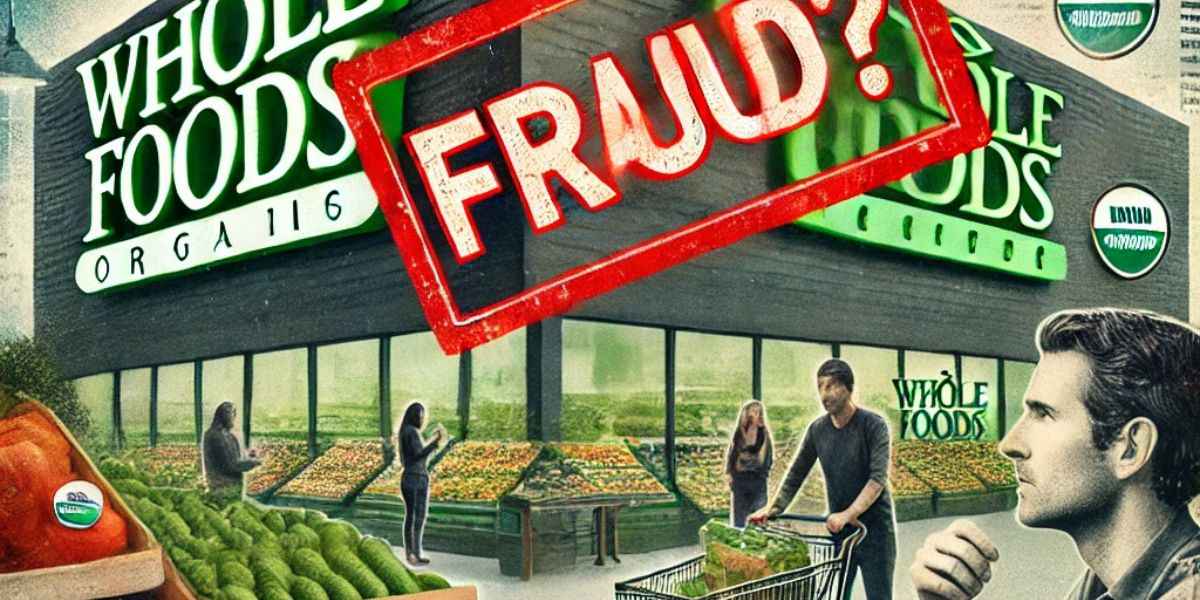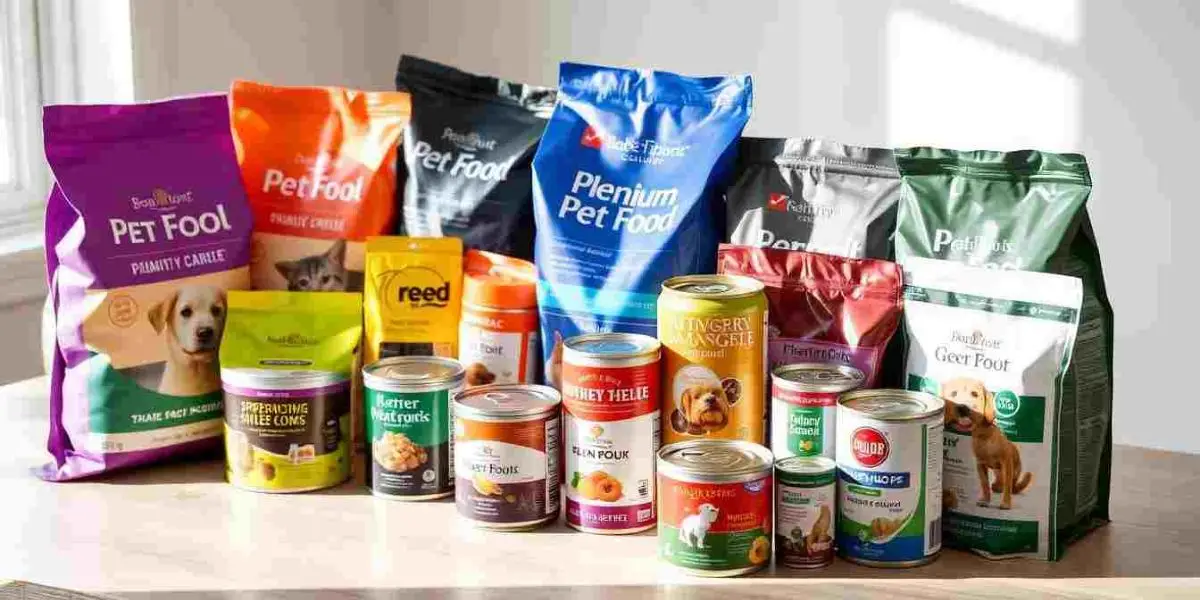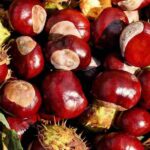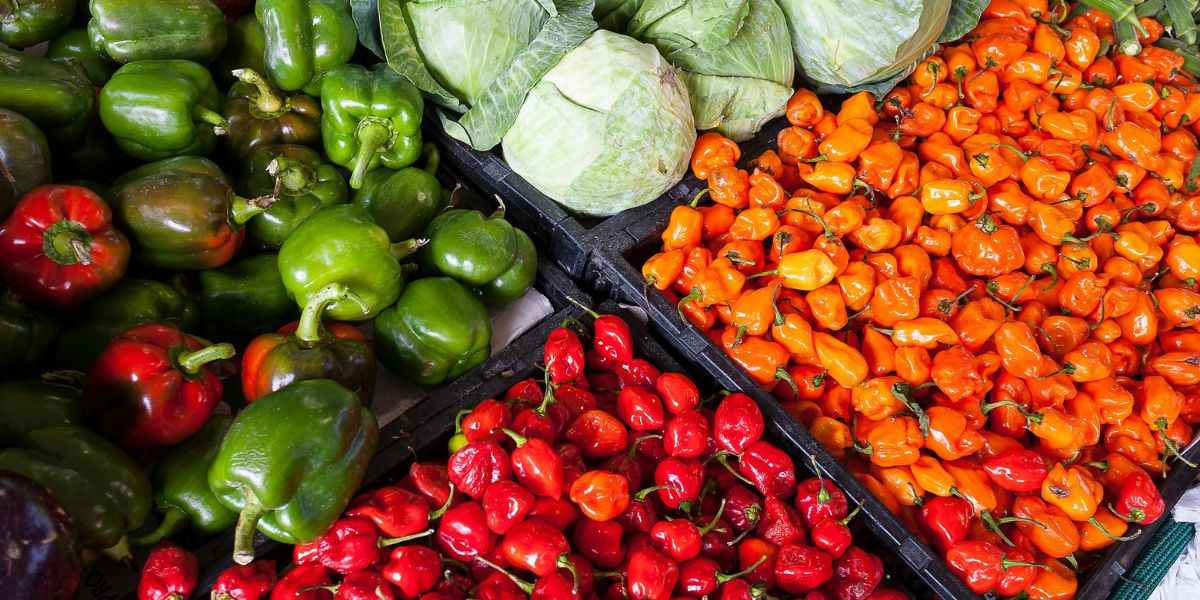Whole Foods Accused of Organic Fraud in the USA: Whole Foods has built its reputation as a leading organic food retailer in the USA. Known for its high-quality, ethically sourced products, it has gained the trust of health-conscious consumers. However, recent accusations have shaken this trust, raising concerns about the authenticity of Whole Foods’ organic claims.
In this article, we’ll dive deep into the controversy surrounding Whole Foods, explore the 2020 organic scandal, and examine what it means for the future of organic food in the USA. Are Whole Foods’ organic products truly organic, or is this just another marketing gimmick? Let’s find out.
Whole Foods Accused of Organic: What’s the Scandal About?
Whole Foods has long positioned itself as the gold standard for organic and natural foods. However, allegations of mislabeling and misleading organic claims have surfaced, sparking widespread debate.
Also Read
The Allegations
Some reports suggest that Whole Foods has sold non-organic products under organic labels.
Certain imported “organic” products have questionable origins, with inadequate certification.
Investigations have uncovered gaps in Whole Foods’ supply chain, raising doubts about the credibility of their organic claims.
Timeline of Events
Pre-2020: Complaints from consumers and watchdog groups started surfacing.
2020: Investigative reports exposed inconsistencies in Whole Foods’ organic products.
Post-2020: Whole Foods faced public backlash, leading to increased scrutiny of organic labeling practices.
This scandal has led many consumers to question the legitimacy of organic food certification and whether they are truly getting what they pay for.
Whole Foods Organic Scandal 2020: What Happened?
The 2020 scandal marked a significant turning point for Whole Foods, as it revealed serious concerns regarding the authenticity of its organic products.
Background of the Scandal
The controversy arose after reports claimed that certain organic products sold at Whole Foods did not meet USDA organic standards. Some key points include: Suppliers failing to meet organic certification requirements.
Imported organic products with questionable authenticity.
Whole Foods allegedly did not conduct thorough checks on their supply chain.
Investigation and Findings
The USDA and independent watchdogs launched an investigation.
Findings showed that some products labeled as organic contained traces of pesticides and GMOs.
Whole Foods was accused of misleading consumers with vague or inaccurate labeling.
Consumer Reaction and Media Coverage
Social media outrage led to a decline in consumer trust.
Major media outlets, including newspapers and blogs, covered the scandal extensively.
Some customers boycotted Whole Foods, demanding stricter regulations for organic food labeling.
This scandal raised the question: Is organic food at Whole Foods organic?
What Is Organic Food? Understanding the Basics
Before we dive deeper into Whole Foods’ organic claims, it’s essential to understand what organic food means.
Definition of Organic Food
Organic food is produced without:
Synthetic pesticides and fertilizers
Genetically modified organisms (GMOs)
Artificial preservatives and additives
Organic Certification Standards
For food to be labeled as “organic,” it must meet strict guidelines set by regulatory bodies like:
USDA Organic (United States)
EU Organic (Europe)
JAS Organic (Japan)
These certifications ensure that food is produced following environmentally sustainable and health-conscious practices.
Organic vs. Conventional Food
Feature Organic Food Conventional Food
Pesticides No synthetic pesticides often contain synthetic pesticides
GMOs Not allowed Commonly used
Fertilizers Natural (compost, manure) Chemical-based
Antibiotics & Hormones Not used in organic meat & dairy Used frequently in conventional farming
Now, the big question is: Does Whole Foods truly meet these organic standards? Let’s investigate.
Are Whole Foods Products Organic?
Whole Foods has always marketed itself as the go-to place for organic food, but the scandal has made people second-guess their trust in the brand.
Scrutiny of Whole Foods’ Organic Claims
Investigations found that some products sold as organic were:
Misleadingly labeled with unverified claims.
Imported from countries with questionable organic standards.
Contaminated with traces of synthetic pesticides.
Certifications and Labeling Issues
While Whole Foods does carry USDA-certified organic products, not all of its offerings meet the strictest organic standards.
Some items carry “natural” or “made with organic ingredients” labels, which do not guarantee 100% organic status.
Third-party audits revealed lapses in supply chain transparency.
Cases Where Whole Foods Failed Organic Standards
Past lawsuits alleged false advertising regarding organic claims.
Investigations found instances where non-organic products were sold as organic.
Consumers are left wondering: Can they truly trust Whole Foods’ organic labels?
Is 365 Whole Foods Brand Organic?
One of the most popular private-label brands at Whole Foods is 365 by Whole Foods Market. This budget-friendly line offers a wide range of products, including fresh produce, packaged goods, and dairy. But is 365 Whole Foods brand truly organic?
Overview of the 365 Brand
Whole Foods markets its 365 brand as an affordable alternative to its premium organic offerings. The products come with labels such as:
USDA Certified Organic – Indicates that the product meets USDA organic guidelines.
Made with Organic Ingredients – This means the product contains at least 70% organic ingredients but is not fully organic.
Natural or Non-GMO Verified – Suggests better quality, but does not mean the product is fully organic.
Certification Status of 365 Products
While some 365 Whole Foods brand products are indeed USDA Organic Certified, others only have partial organic claims. Some products under this brand have also faced scrutiny for misleading organic labeling, similar to Whole Foods’ broader scandal.
Consumer Trust and Skepticism
Many customers have become more cautious about 365’s organic claims, questioning:
Whether imported organic ingredients in 365 products truly meet USDA standards.
If Whole Foods ensures consistent quality checks for its store-brand organic items.
How trustworthy 365 Whole Foods’ organic products are compared to premium organic brands.
Ultimately, while some 365 products are genuinely organic, not all fall under strict organic certification. Consumers need to check labels carefully and verify certifications before making a purchase.
Organic Food Pros and Cons: Should You Still Trust Organic Labels?
The Whole Foods scandal has made people rethink the true meaning of “organic.” While organic food offers many benefits, there are also some drawbacks.
Pros of Organic Food
✔ Healthier Option – Free from synthetic pesticides and chemicals.
✔ Better for the Environment – Promotes sustainable farming practices.
✔ Supports Animal Welfare – No antibiotics or growth hormones in organic meat.
✔ No GMOs – Certified organic food does not contain genetically modified ingredients.
Cons of Organic Food
❌ More Expensive – Organic food is often pricier than conventional options.
❌ Not Always 100% Organic – Some products labeled “organic” may still contain non-organic ingredients.
❌ Difficult to Verify Authenticity – Food fraud and misleading labels make it harder to trust organic claims.
❌ Shorter Shelf Life – Organic products tend to spoil faster without preservatives.
How to Ensure You Are Buying Real Organic Food
Look for USDA Organic certification instead of vague “organic” labels.
Buy from local farmers markets where you can ask about farming practices.
Read the ingredient list to spot non-organic additives.
Research brands to see if they have past violations or organic fraud allegations.
Despite its flaws, organic food remains a healthier choice, but it’s crucial to do your homework before trusting a label.
Dangers of Organic Food: Myths vs. Reality
Some consumers believe organic food is always safer, but is that really true? While organic food has advantages, there are also hidden risks.
Potential Risks of Organic Food
Mislabeling & Fraud – Companies may falsely advertise products as organic.
Bacterial Contamination – Organic produce, especially raw vegetables, can carry harmful bacteria like E. coli.
Nutrient Variability – Organic crops sometimes have fewer nutrients than conventionally grown crops.
Pesticide Residues – While organic farms avoid synthetic pesticides, they still use natural pesticides, which may not always be safe.
Common Myths About Organic Food
🛑 Myth: Organic food is always 100% pesticide-free.
✔ Truth: Organic farms use approved natural pesticides, which can still leave residues.
🛑 Myth: Organic food is always healthier.
✔ Truth: Some organic foods have fewer nutrients than their conventional counterparts.
🛑 Myth: All organic food is locally sourced.
✔ Truth: Many organic products are imported from other countries with looser regulations.
Understanding these risks helps consumers make informed decisions about their food choices.
What Happened to Whole Foods? The Impact of the Scandal
The Whole Foods organic scandal shook the trust of many loyal customers. But what happened after the controversy?
How the Scandal Affected Whole Foods?
📉 Declining Consumer Trust – Many shoppers questioned Whole Foods’ commitment to organic food.
⚠ Increased Scrutiny – Government agencies and watchdog groups started monitoring Whole Foods more closely.
💰 Financial Impact – Whole Foods faced declining sales and brand damage due to the controversy.
Changes in Policies and Regulations
To regain consumer trust, Whole Foods took steps such as:
Stricter supply chain audits to verify organic sources.
More transparent labeling to differentiate between fully organic and partially organic products.
Improved communication with customers about the meaning of organic certifications.
Public Perception and the Future of Whole Foods
Some consumers have forgiven Whole Foods, while others have turned to alternative organic retailers. As a result, Whole Foods has had to work harder to repair its reputation and prove its organic integrity.
Why Does Organic Not Mean 100% Organic?
Many shoppers assume that if a product says “organic,” it must be 100% organic—but that’s not always the case.
Loopholes in Organic Certification
Some food labels use misleading terms like:
“Made with Organic Ingredients” – Only 70% of the product must be organic.
“Natural” or “All-Natural” – Does NOT mean organic at all.
“Non-GMO” – While it avoids genetically modified ingredients, it does not guarantee organic status.
USDA Organic Labeling Explained
Label—————————- What It Means
100% Organic——————– Must be made with only organic ingredients.
Organic—————————- Must contain at least 95% organic ingredients.
Made with Organic Ingredients—- Must contain at least 70% organic ingredients.
Non-GMO or Natural ————–NOT necessarily organic—may still contain non-organic ingredients.
How Consumers Can Ensure Real Organic Quality
Always look for the USDA Certified Organic seal.
Read the ingredient list to verify organic percentages.
Be wary of vague marketing terms like “natural” or “eco-friendly.”
Understanding these loopholes helps consumers avoid misleading organic claims.
Conclusion
The Whole Foods organic scandal has made one thing clear: Not all organic food is created equal. While Whole Foods still offers many genuine organic products, some of its claims have been misleading.
If you want to ensure you’re buying real organic food, always:
✔ Check for USDA Certified Organic labels.
✔ Research the brand’s history and reputation.
✔ Be aware of loopholes in organic labeling.
✔ Support local organic farmers whenever possible.
At the end of the day, Whole Foods remains a major organic food retailer, but consumers must stay informed and demand transparency to ensure they’re truly getting what they pay for.
FAQs
🔹 Is Whole Foods organic food organic?
Some Whole Foods products are truly organic, but others have been accused of misleading organic claims.
🔹 What are the weaknesses of Whole Foods?
Whole Foods has faced criticism for high prices, supply chain issues, and questionable organic labeling.
🔹 What happened to Whole Foods?
After the organic scandal, Whole Foods faced public backlash and stricter government scrutiny.
🔹 Why does organic not mean 100% organic?
USDA organic certification allows some non-organic ingredients, depending on the product category.
🔹 Is the 365 Whole Foods brand fully organic?
Some 365 products are organic, but others only contain partially organic ingredients.










rmc21r